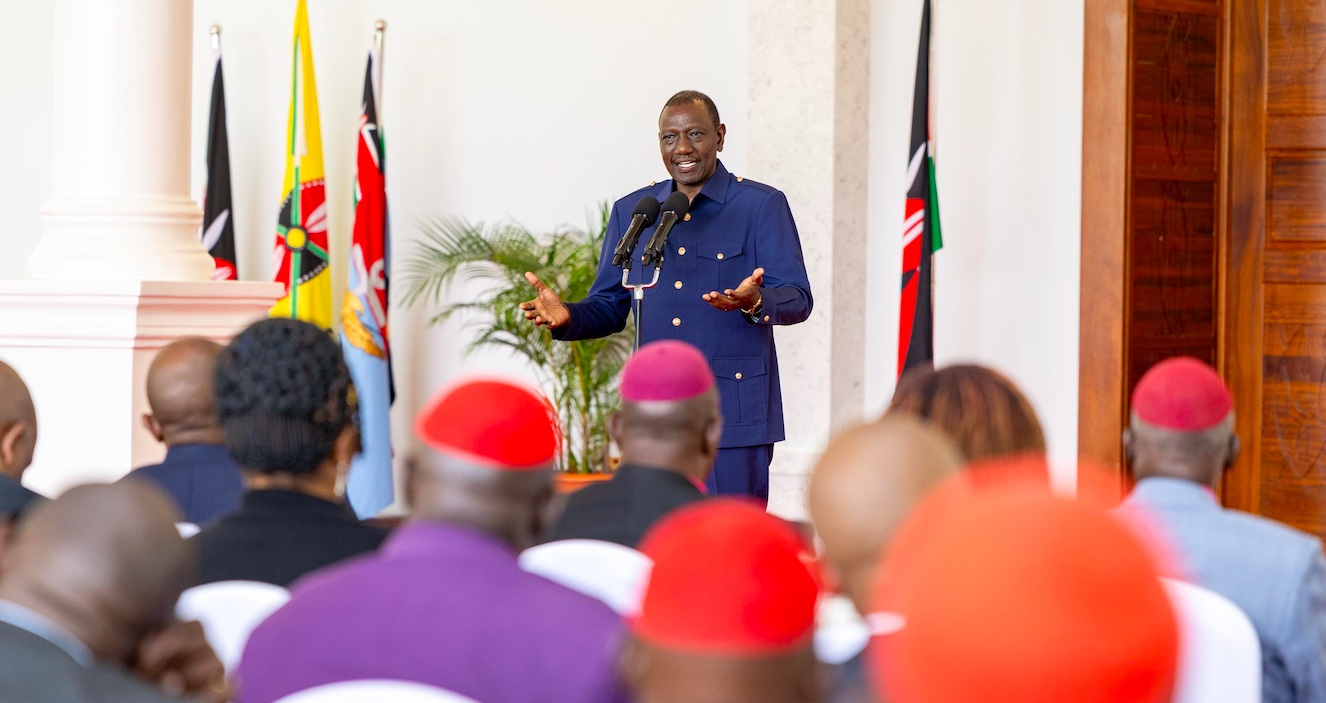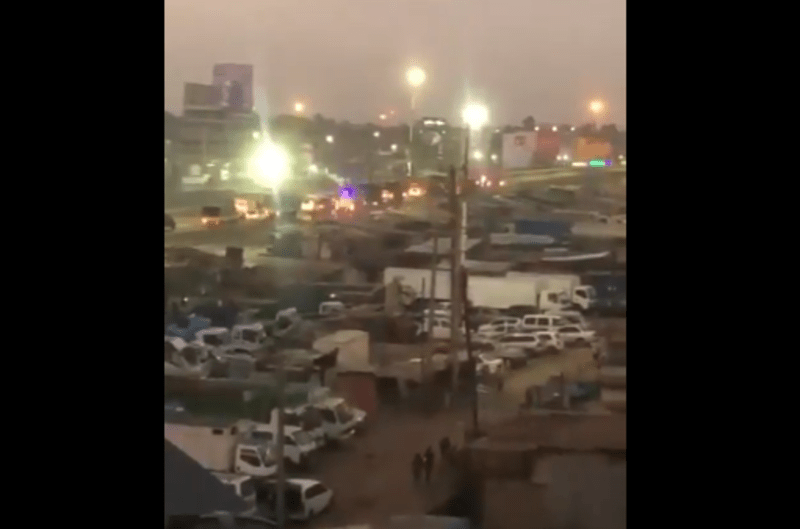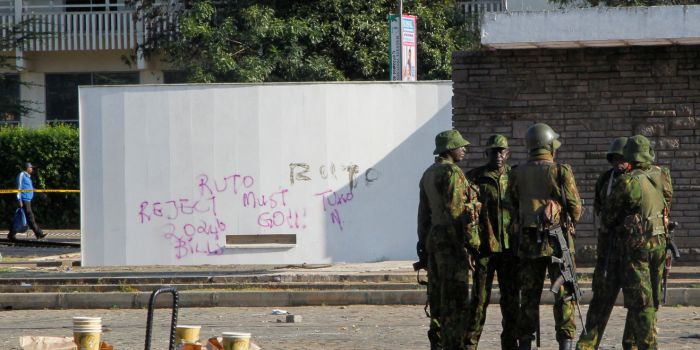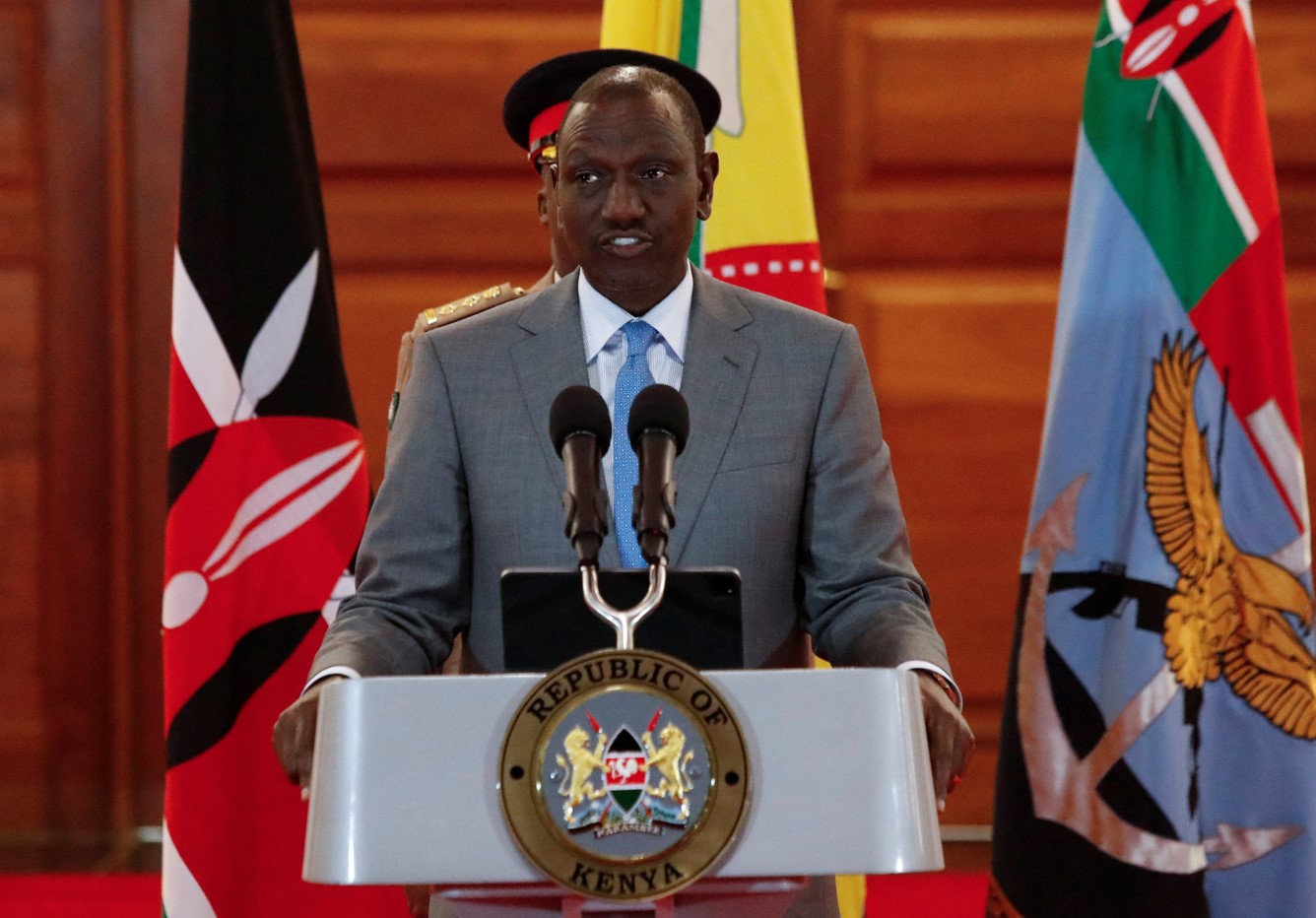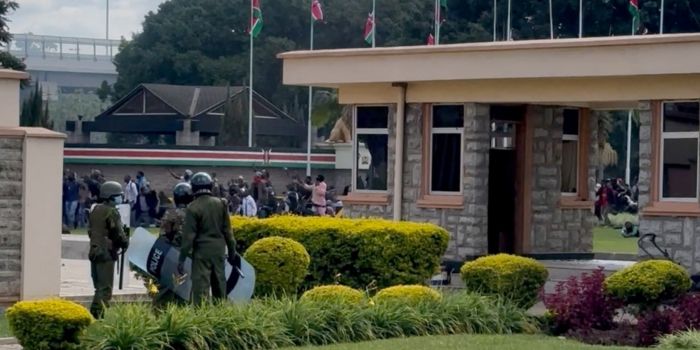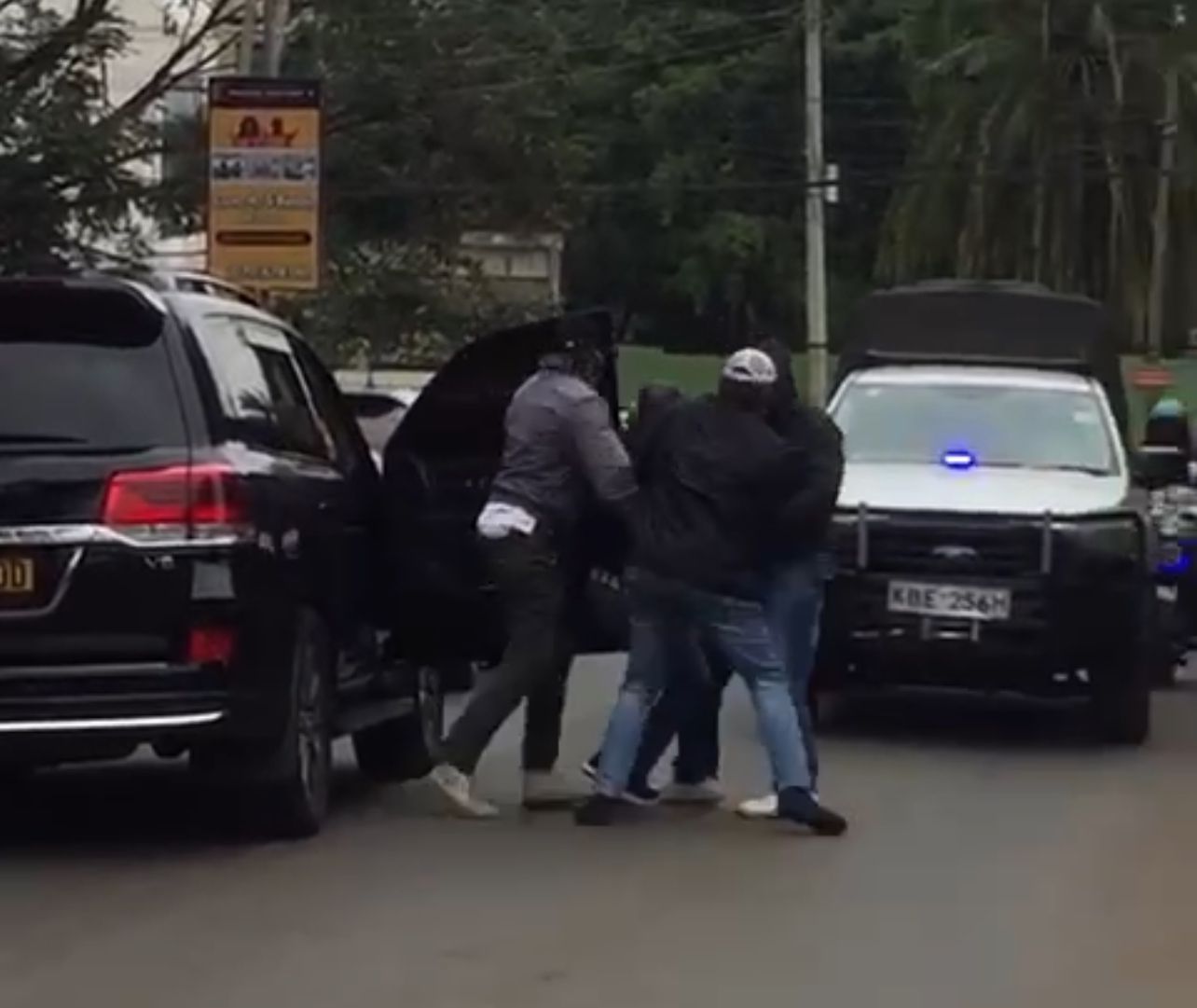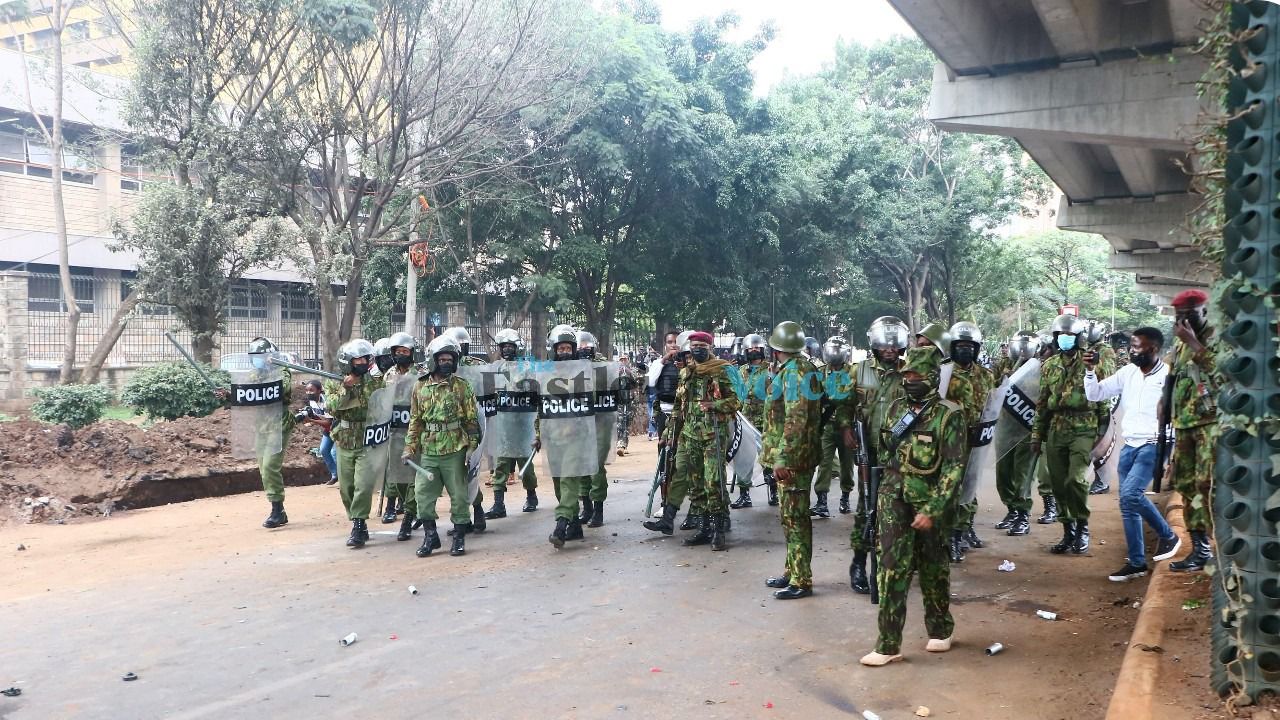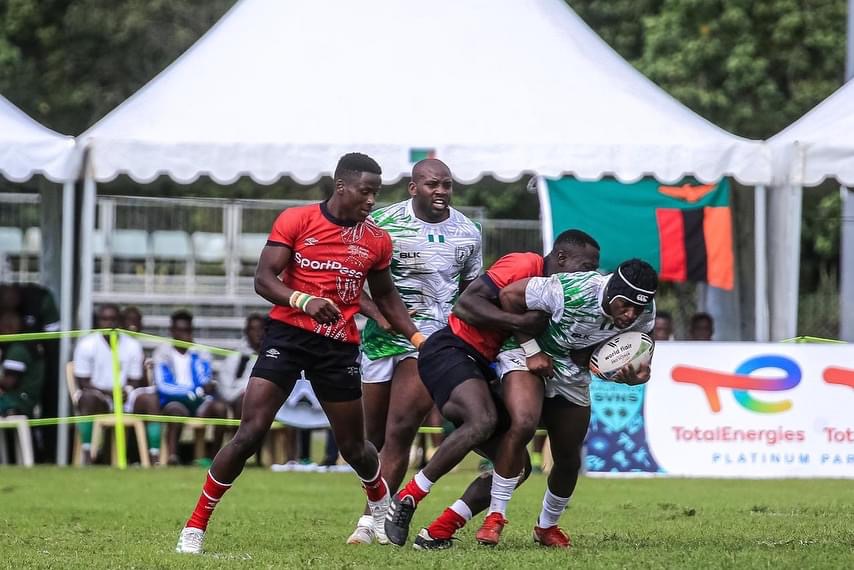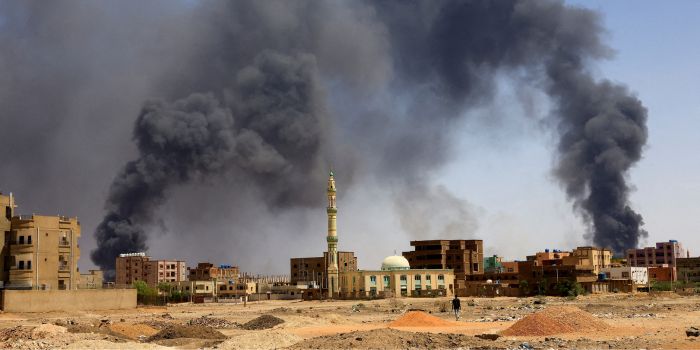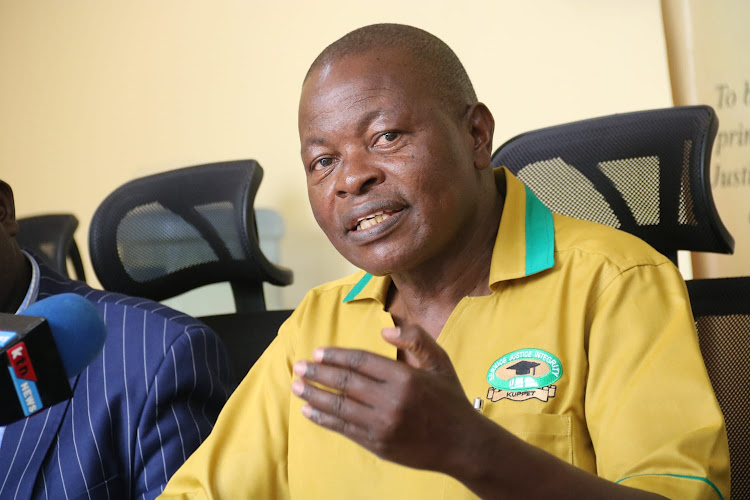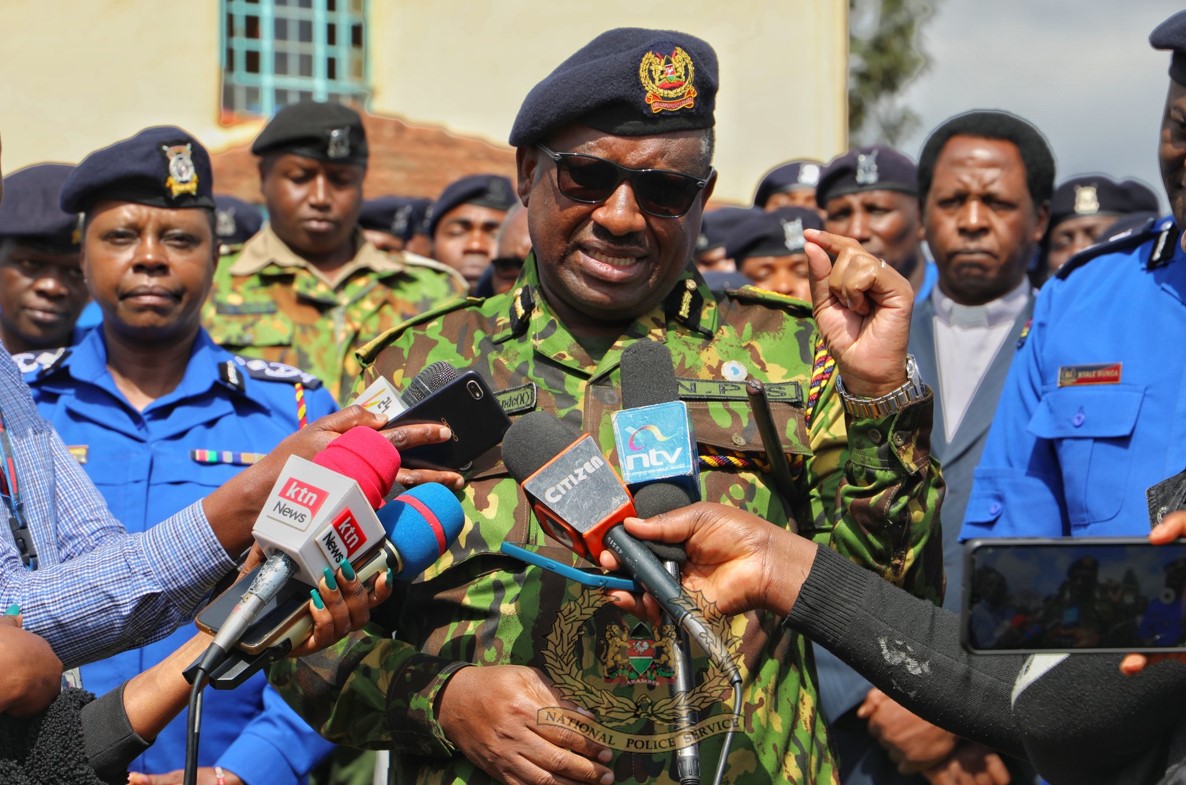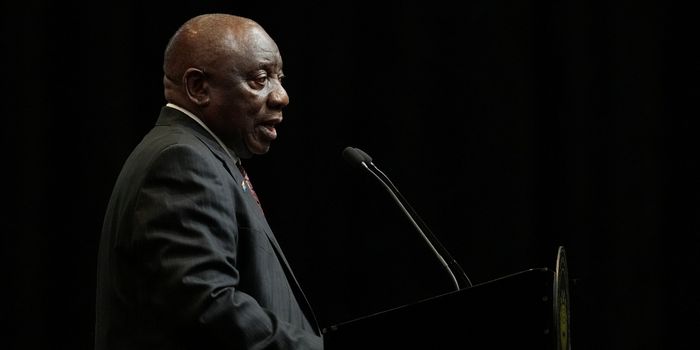Haiti crisis: Why Kenya's Haiti deployment is a 'suicide mission'

By Mwangi Maina |
Dan Foote, former US special envoy for Haiti, says that a mission of "2-4000 police in the Caribbean country will be a suicide mission".
Kenyans are increasingly getting jittery about a peace offensive mission to Haiti that will see 1,000 police officers deployed to help combat gang violence that is part of a bid to oust Prime Minister Ariel Henry.
While President William Ruto's government says the country is now ready to deploy the contingent to lead a multinational mission that will help restore law and order in the Caribbean nation, some fear the mission will fail as not enough police officers will be sent to fight the gangs that have wreaked havoc for weeks.
Keep reading
A Kenyan legislator who is a high-ranking member of the parliamentary Defence, Intelligence, and Foreign Relations Committee told The Eastleigh Voice, "Kenya's offer and commitment to deploy a police contingent to support the local Haitian police force has been overtaken by events."
"The condition for law enforcement no longer exists in Haiti," stated the parliamentarian who spoke on condition of anonymity.
President Ruto has maintained his stance that the mission must take place and has signed a reciprocal agreement with Haiti ahead of the deployment, even though a January 2024 order by High Court Judge Chacha Mwita stopped the deployment.
The President cites reasons including the need to support a "mission for humanity" and ensure Kenya fulfils its international obligations.
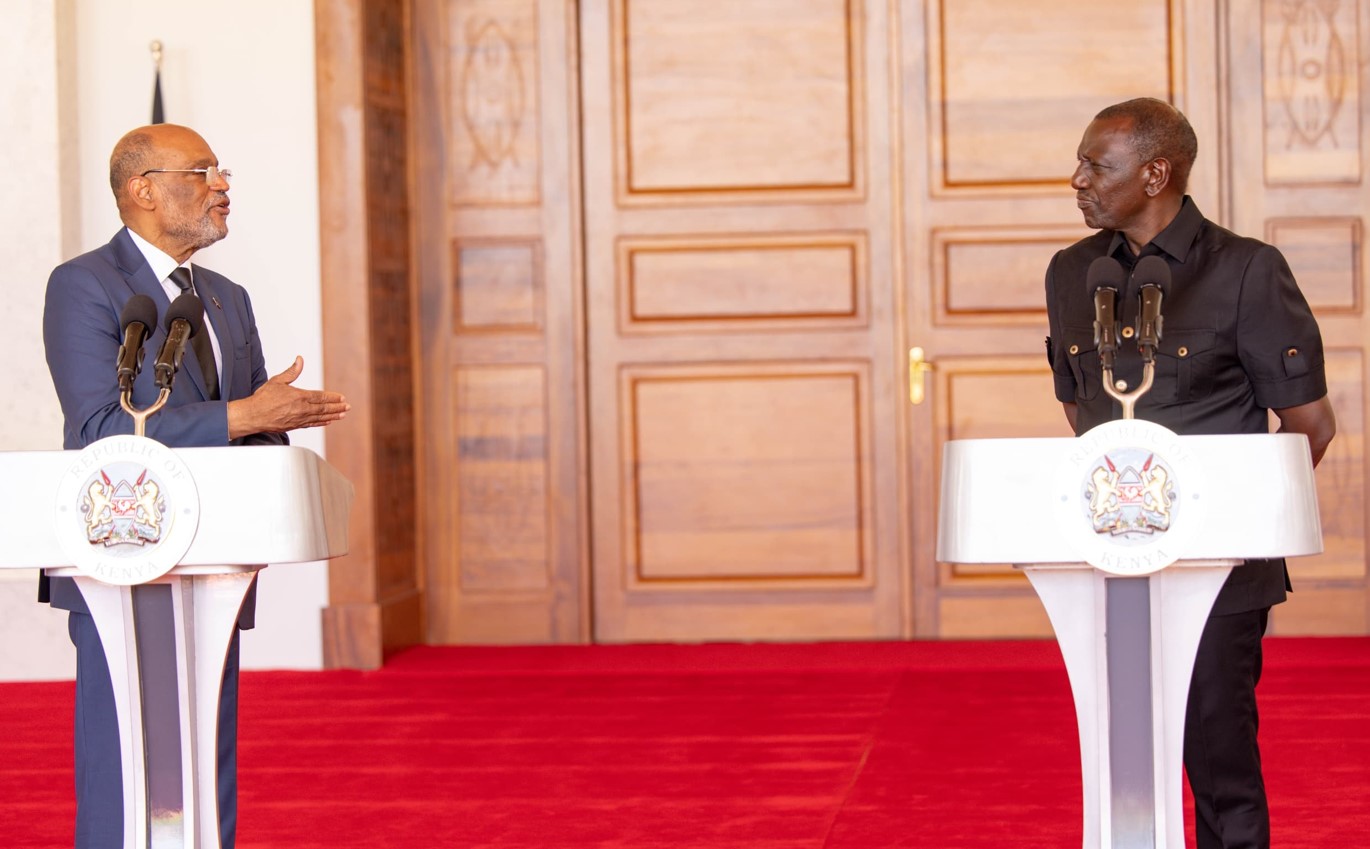 Haitian Prime Minister Ariel Henry and President William Ruto are pictured during their joint press conference at the State House in Nairobi on March 1, 2024. (Photo: PCS)
Haitian Prime Minister Ariel Henry and President William Ruto are pictured during their joint press conference at the State House in Nairobi on March 1, 2024. (Photo: PCS)
Aukot's stance
More criticism came on March 7, 2024, from Thirdway Alliance party leader Ekuru Aukot, the politician behind the court challenge that led to a ruling that declared the mission unconstitutional and illegal.
Via X, Aukot noted that developing news from Haiti was troubling.
"The USA has recalled its citizens from Haiti. Canada has closed its embassy in Haiti and recalled its citizens. The violence in Haiti is worsening. Only Kenya is ready to send its policemen to Haiti. No one knows what Kenya is getting out of this move, and no one knows how it was negotiated. What does the agreement entail? This is truly puzzling," he said.
He also criticised PM Henry and the reciprocal agreement he and Ruto signed on March 1, 2024, at the State House in Nairobi - an arrangement between two or more states that prevents an employee working in one while living in the other from having to pay income taxes to both.
In January, Judge Mwita also ruled that Kenyan officers could only deploy with such an arrangement in place.
Aukot also says that he will present another court challenge against the mission, depending on the actions the government takes.
More officers needed
Criticism has also come from the US.
Dan Foote, former US special envoy for Haiti during the Biden administration, criticised his former colleague Brian Nichols, now assistant secretary for Western Hemisphere affairs, for disregarding advice and warnings against international meddling without addressing Haiti's underlying issues.
He cautioned that Kenya's long-awaited lead role in Haiti, with increased international interference, would inevitably lead to failure.
Foote, who resigned from the role in September 2021 citing the "inhumane" deportation of Haitians last week said that a mission of "2-4000 police in the Caribbean country will be a suicide mission".
He argued that a force of 20,000 or more would be needed and would have to be supplied by the US, Canada and France.
The UN Security Council expressed its concern last Wednesday over the deteriorating situation in Haiti.
Armed gangs who control swaths of the country launched a coordinated effort to oust Henry last week, attacking the airport, prisons and police stations and threatening a full-scale civil war.
Washington conducted an overnight mission to evacuate staff and add security at the embassy in Haiti, another sign of the deteriorating situation in the capital of Port-au-Prince.
The US military airlifted US personnel into and out of the embassy at the request of the US State Department, according to an early Sunday statement from American Southern Command.
Washington has decided not to send US military forces to intervene in the situation, and will instead "enable and encourage our international partners to resolve it themselves," according to an official who spoke to POLITICO.
According to analysts, many in the US are wary of Washington's history of occupation and intervention in Haiti.
In 1915, the US invaded Haiti and occupied it for nearly two decades, ostensibly to restore order, but it left behind more chaos.

Restoring democracy
Jonathan M Katz, author of "The Big Truck That Went By; How the World Came to Save Haiti and Left Behind a Disaster", criticises the US for backing a "democratic vacuum" in Haiti since President Jovenel Moise was assassinated in July 2021 without supporting a plan to restore democracy.
In 1994, President Bill Clinton, in what they called 'Operation Uphold Democracy', sent in more than 20,000 troops to restore ousted President Jean-Bertrand Aristide to power after a 1991 military coup.
The move worked, and the junta backed down.
But this was short-lived. Ten years later, the United States in 2004 led another international intervention when President Aristide's government was again toppled.
All these interventions by the States never worked. They failed to democratize Haiti.
Canada, which has a linguistic and geographical advantage, doesn't want to deploy.
Ottawa pushed back last year after pressure from Washington, refusing to be dragged into what they perceived as a 'Haitian Quagmire' according to Canadian Public broadcaster, CBC.
The Canadian Chief of Defence Staff General Wayne Eyre said he doubted Canada could pull off such a mission right now, given its commitments in Europe, especially the support directed to Ukraine.




